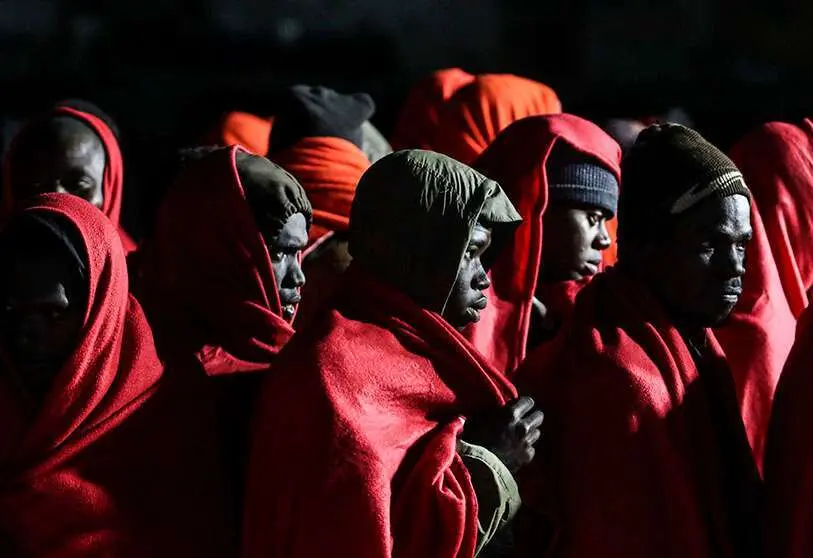Only one-way

In 2005, Erri De Luca published an epic poem, Solo andata (Only One Way), in which different anonymous voices and a chorus took the floor to tell from the inside the journey of the Mediterranean, which so many African migrants make from the north of their continent to the Italian coast. Towards the end of the poem, one of these voices enunciates the verses that give it its title: "You can reject us, not send us back, / the journey is scattered ash, we are only one way", condensing in them a firm will to remain on the welcoming ground.
As if they had heard these words, some of the European countries affected by COVID-19 (and, let us not forget, very much conditioned by the effects that the disease has had on the economy and the labour market) have in recent months implemented social and economic policies aimed at making life in Europe more stable for those who have made such a strong commitment to it.
Already at the end of March, Portugal decided to regularize on a fast-track procedure the situation of all immigrants who were awaiting a residence permit in that country. Thus, those who had begun the process of applying for residence, began to enjoy the benefits granted by Portuguese citizenship: the possibility of signing employment contracts, opening current accounts, joining the National Health Service or applying for benefits for workers who must stay at home to care for minors or the elderly, as well as those resulting from the suspension of the employment contract. The measure, in the words of Portugal's Minister of Internal Administration, sought to "guarantee the rights of the most vulnerable", to protect them from COVID-19.
The case of Italy has been particularly significant: the Minister of Agriculture, Teresa Bellanova, a worker in her youth, has put all her energy into regularizing the situation of immigrants who work in the fields and in homes as domestic servants. The measure, which consists of regularising the employment situation of tens of thousands of immigrants, although it is motivated by the lack of labour in the current situation, does not cease to indicate a major change of direction with respect to the policy promoted by Matteo Salvini, Vice-President and Minister of the Interior in the previous government, based on the criminalisation of immigrants and the closure of ports to NGOs working in the Mediterranean in rescue operations.
The moderately positive reception given to this initiative by Minister Bellanova, strongly supported by Prime Minister Conte, and publicly endorsed by Pope Francis, is estimated to affect some 250,000 people, and reveals the extent to which the pandemic has altered the concerns of Italian citizens, who have changed their priorities and shifted support for anti-immigration speeches to concerns about the normalisation of social life and the recovery of the economy.
In a similar context of labour shortages in the countryside, brought about by the closure of borders and the protective measures taken by workers against the pandemic, the Spanish Government, through its Ministry of Agriculture, published a Royal Decree on 7 April last, adopting certain urgent measures in the field of agricultural employment, some of which affected migrant workers; specifically, the decree allowed, on the one hand, extensions for foreign seasonal workers whose work permits expired between the declaration of the state of alert and 30 June; and, on the other hand, it granted work permits to young nationals of third countries, who were in a regular situation at the time, aged between 18 and 21 years.
This Royal Decree was followed up at the end of May with a measure granting a two-year residence and work permit (extendable to another two years) to young migrants who had taken up work in the countryside in an extraordinary way, and who in many cases had obtained their first work contract thanks to the Royal Decree of April.
In short, and as we wrote in a previous collaboration, the social and economic crisis caused by the COVID-19 has also produced positive effects in the countries that suffer it, one of which would be this recognition of the contribution to society made by immigrants, endorsed in the various countries by the regularization of their social and labor situation, another stage in the "one-way" journey that they decided to undertake.
Luis Guerra, Professor of Spanish Language at the European University of Madrid, is one of the main researchers of the INMIGRA3-CM project, funded by the Community of Madrid and the European Social Fund

